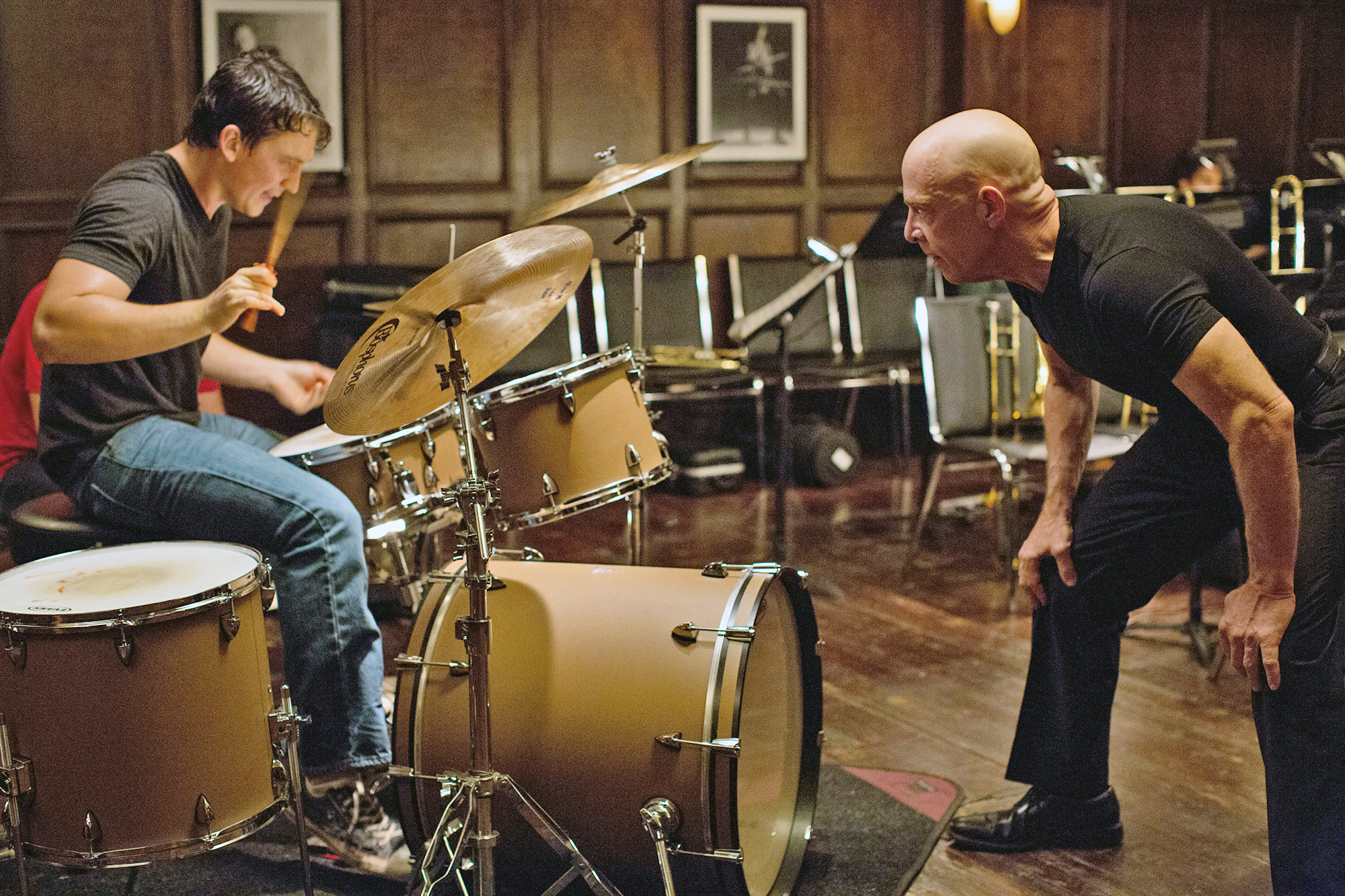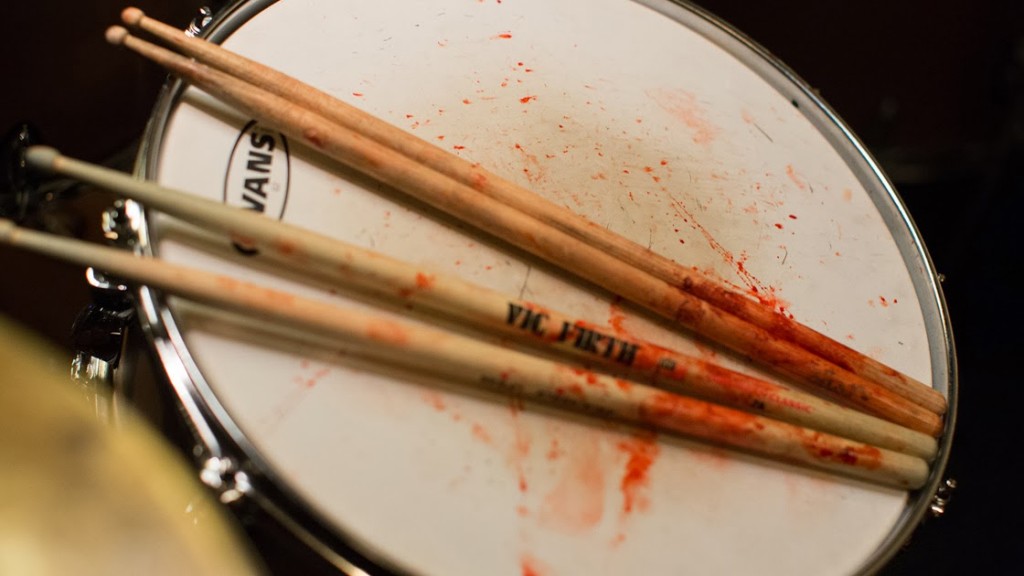Last weekend I sat down impatiently for the debut screening of ‘Whiplash’. I had read about it, watched the trailer more times than I care to mention and had been hotly anticipating this fast-paced music film, and as you’ll read from our Fortitude review it will not leave you disappointed. Everything about it was perfectly played out to the final inch. As a musician, I think I’d like to share with our readers my thoughts behind this surreal film and discuss some of the themes regarding the parallel between this film and reality.
Jazz is an incredible art form. I have been studying it for about five years now and I still struggle to even comprehend the enormity of it. In ‘Whiplash’ we see Nieman, a jazz drummer, at a top end conservatoire in New York. Conservatoires cover everything from classical to jazz to drama and are an elitist society which sees high level of dedication and achievement, beyond what is expected normally and yes, there are teachers just like Fletcher out there in these conservatoires. Is this a bad thing though? At this soaring level of expectation there can be no space for mucking about in practice and learning. You either make it, or you don’t and this ideal is constantly brought into question in the film. Should we push students to the edge of their sanity in order for them to achieve greatness? Will the emotional impact of their intense musical regime impact them negatively more often than positively?
I have seen music cripple players, often literally, with emotional breakdowns, substance abuse as a form of recovery and complete devastation when failing to reach the required mark, a mark that is often set so incredibly high. Do I have a problem with this, having suffered many of those things? Not in the slightest. Actually, to further this, after watching ‘Whiplash’ with another musician, we both agreed we would like to have a teacher as harsh and critical as Fletcher to mentor us….although perhaps, not quite to the degree of physical violence.
Often we see singers rise to the top simply for doing some basic ‘vocal-training’, I use the term broadly, on a TV show desperate for ratings, before being voted by millions of non-musically educated people and become the latest drop in a stream of degrading un-inspiring musician flops. Flip the coin and look at the example the film gives us. The story of Charlie Parker is retold many times in ‘Whiplash’ as a prime example of the benefits of harsh criticism.
Charlie Parker at the age of 16 played with one of the leading swing drummers at the time, but messed up to which Jo Jones, the drummer, launched a cymbal violently at his feet and he was laughed off stage. Charlie Parker then went into full study and became one of the greatest saxophonists the world has ever seen. Fletcher poses the question to Niemen whether Charlie Parker would still be a great if he had just been told he had done a good job? This isn’t just a matter of jazz or classical either but in all disciplines including sport, art, acting and countless others. Greatness does not come without hard work, blood, sweat, tears and emotional distraught.
Can this become too much? Yes, easily. I think there needs to be more support for musicians going through this as often we are too selfish to ask for or admit to even needing help. Musicians often get locked in a cycle of practice and lose sight of why they even started playing, often losing control over many factors of their lives. Emotional support is the best benefit a hard working musician can have, as it grounds them in reality when pushing themselves beyond the threshold of expectation. But this does not equal ceasing the musician from the action of progression.
They’re pushing themselves in order to become something which they have dreamed of, to be able to defy the greats that got them into the music they plan, not just be able to whack out ‘Let It Be’ at a party. If a friend says to you, “oh I play piano”, your mind immediately jumps to them slouching over a Casio keyboard slaughtering ‘All Of Me’ 500 billion times. You do not picture them plastering up their fingers after learning a new Tchaikovsky piece or falling back tirelessly after finally working out a double time walking bass line with block chord sequence. Musical practice has been brought down by speculation of a quantifiable amount of hours to become good and by light-hearted approaches to ‘fun practice’. To become great, the reality is scarily close to Whiplash. As Fletcher confessed to Nieman in a small jazz bar nearing the end of the movie…
“I believe that is an absolute necessity”


